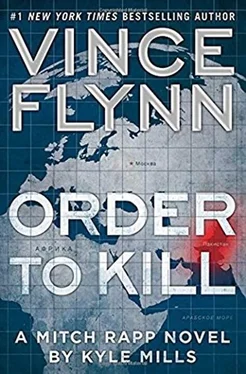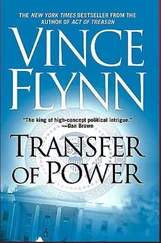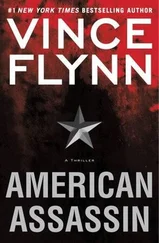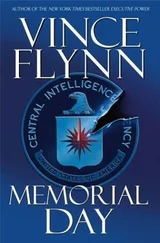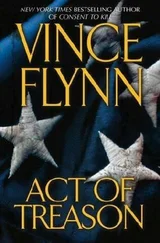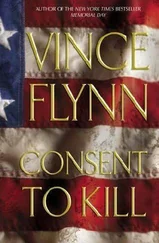Coleman propped his elbow on the floor and aimed carefully at a man hammering a crowbar beneath the lid. He took a breath and held it before gently squeezing the trigger. The quiet snap of the gun was followed by the man’s head jerking back. And then all hell broke loose.
MOSCOW
RUSSIA
PRESIDENT Maxim Krupin strode down the hallway flanked by two men in traditional Russian military uniforms. The thick red carpet seemed to disappear into the distance, absorbing the sound of their footsteps. For the first time, the silence and grandeur failed to fill him with a sense of his own importance.
When the ornate doors at the end of the passage finally came into view, he slowed. The anger had been building in him since the moment this meeting was scheduled. The fact that it was necessary-that he lacked the power to prevent it-infuriated him. In the end, though, this was the way of the world. No dictator’s grip was absolute. History was littered with the corpses of men who forgot that simple fact.
Two additional guards snapped to attention next to a pair of marble pillars and then moved to open the doors. Krupin passed through without acknowledging them.
The conference room he’d chosen was the least grand available. It was long and narrow, with a utilitarian table that extended too close to unadorned green walls. The men seated around it were somewhat more impressive-a sea of tailored suits, extravagant jewelry, and elegant haircuts. Twelve in all, they were members of Russia’s new ruling class. Each had a net worth in excess of ten billion U.S. dollars, with holdings throughout the country and the world. Oil, gas, real estate, and arms were the primary sources of income, but their portfolios diversified more every year. Commercial fishing, media, construction, and agriculture played an ever-growing part. It was a complex web that was becoming difficult for him to control. And as the importance of his role diminished, so grew their arrogance.
“Gentlemen, thank you for coming,” Krupin said as they all stood.
He singled out a few of the most influential men for a brief nod and then took a place at the head of the table.
“Please sit.”
All did as he asked, but none returned his greeting or spoke. They were fully aware of what had happened to Dmitry Utkin and now knew that they weren’t as untouchable as they had once imagined. Good. Let them speak in whispers about it among themselves. Let them lie awake at night wondering if Grisha was just outside their door. If it was their turn to face him.
Without exception, the men in the room owed everything they had to the government. If it weren’t for the gifts, payments, tax breaks, and nepotism lavished on them after the fall of the Soviet Union, they would be scraping out an existence far from the halls of power. As time passed, though, that history became easier to deny. They began to forget what had made them what they were and to believe they should have a say in how the country was run.
The arrogance of that position was laughable, but to ignore it would be unwise. While they didn’t have the FSB or Grisha Azarov at their disposal, they were still dangerous. Each commanded enormous resources and great political power both within Russia and outside it. Further, most had significant ties to organized crime along with the mercenaries, assassins, and traitors who made up those syndicates. As distasteful as it was for Krupin to admit, a war between him and the oligarchs would destroy everything he had built while producing no clear winner.
“Academics have many names for government structures,” Krupin started. “Monarchy, democracy, communism, socialism. But there’s really only one. The world has always been ruled by a small group of men with the cunning, strength, and drive to take the reins of power. You are those men. The rest-the people outside these walls-are sheep.”
Krupin’s gaze moved around the table as he spoke, making eye contact with everyone seated at it. “Even the Americans who believe their democracy to be so unique are no different from us. Their politicians are members of family dynasties and owned by wealthy patrons. Information is controlled by a media flogging false narratives for profit. They call us corrupt, but we’re all members of the same hypocrisy. It can be no other way.”
He paused and, predictably, all eyes flickered toward Tarben Chkalov. He was in his mid-eighties and nowhere near the wealthiest of them, but there was little question that he commanded the most respect. His holdings were the most diverse internationally and he’d moved most aggressively to distance himself from Russia’s system of patronage. It was this careful maneuvering that had made him the de facto leader of the oligarchs and the second-most-powerful man in Russia next to Krupin himself.
As was his custom, Chkalov stood and silently acknowledged everyone at the table before he spoke. “We all agree with much of what you say, Mr. President. And we are fully aware of our debt to the Russian government for its past favors and to you personally for your political skill. You’ve given the people enemies-the Americans, the breakaway states, the homosexuals. You’ve given them a sense of outrage and persecution. You’ve inflamed their nationalism. All these things have been extraordinarily effective at keeping attention diverted from our activities as well as your own.”
Chkalov fell silent, looking down and concentrating on the empty table before him. Anyone else might have seen the pause as an indication that his mind was weakening, but Krupin knew better. The useless old woman was simply choosing his next words carefully.
“While what you say is true about the corruption of the West, there is still a great chasm between their system and ours…”
Another lengthy pause, this one longer than Krupin had ever personally experienced. Maybe the insufferable old bastard was finally losing his mind.
“May I speak plainly, Mr. President?”
Krupin tensed, but not in a way that would be visible to the others. He’d occasionally been asked this question early in his presidency, but quickly demonstrated how he dealt with anyone too frank in their opposition. Chkalov, though, was in a very different category than the bureaucrats and minor elected officials that infested the Kremlin. There was only one answer Krupin could give.
“Of course, Tarben. We’ve been friends for many years and I value your opinion.”
“The situation in Russia is getting bad enough that the people are beginning to see through the fog you’ve created. I sense that you’re aware of this and I believe that the growing danger has made you act rashly.”
Another infuriating lull.
“Ukraine offered a brief populist boost to you personally but the Western sanctions are slowly bleeding us. And your ban on the importation of Western food products was the result of anger, not calculation. Putting images of the government burning millions of rubles worth of perfectly good food in a country where people are going hungry has had disastrous results.”
Krupin’s anger grew with every word. He managed to keep his face impassive, but the skin on his cheeks started to burn.
“I believe that the low energy prices punishing Russia’s economy will persist. The Americans are producing increasing amounts of oil and gas, and the Saudis are committed to keeping prices low in order to hamper the development of renewables and to bankrupt American producers-both battles they are losing. Technology moves inevitably forward and no one in this room or in similar rooms around the world can stop that progress.”
Krupin found it impossible to remain silent any longer. “Are you finished?”
It was a question that was always answered in the affirmative by the fearful men and women who worked for him. But Chkalov wasn’t one of those people.
Читать дальше
